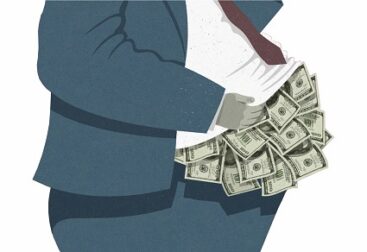To become stronger, faster, and fitter, you have to push your body harder. But then you have to rest, too. All workouts, especially tough ones, stress the body. You’re fatiguing, or tiring out, various muscles when you work out, which means you’re causing microscopic damage to muscle cells. Hormone and enzyme levels fluctuate, and inflammation increases. The damage that exercise causes triggers your body’s immune system to repair that damage, and when your body’s tissues — from your muscles and bones to heart and lungs — recover, they become slightly fitter than they were before. That way, the next time you perform the same workout, you won’t suffer as much damage. However you have to cause some damage to your body for it to adapt. Repeated again and again, this process of stress and recovery is what results in improved health and fitness.

How long does muscle recovery take?
The amount of time it takes for your muscles to recover from exercise depends on your fitness levels and the difficulty of your workout. The volume, intensity, and duration of your workout all play a role in determining how taxing it is on your body. After a relatively light workout, your muscles may be able to recover in 24 hours, whereas a more challenging workout might take two to three days. Very intense workouts might take even longer.
Use the following tips to improve the speed and quality of your muscle recovery so that you can keep working towards your health and fitness goals.
Avoid overtraining. One simple way to recovery faster is by designing a smart workout routine in the first place. Excessive exercise, heavy training at every session, or a lack of rest days will limit your fitness gains from exercise and undermine your recovery efforts.

Eat nutritious food. Consuming the best foods possible will give your body the proper fuel it needs to perform and recover. What you put in your body matters because your recovery depends on the vitamins and nutrients you digest. Physical activity puts stress on your body, so you need to support the recovery process by eating well.
Drink a lot of water. Hydrating after a workout is key to recovery. Without enough water in your body, you won’t be able to bounce back and take advantage of all of the hard work you’ve just done. Water provides many benefits for your body, including carrying nutrients and oxygen to your cells and regulating body temperature. Without proper hydration, it’s difficult for your body to normalize blood pressure and stabilize your heartbeat. You’ll reap the rewards of your tough workout when you drink water.
Get enough sleep. Getting proper rest is easily one of the most effective ways to recover from any form or degree of physical exertion. Sleep allows your body to repair its muscle tissue. Hormones, such as human growth hormone and testosterone, increase during sleep, which helps you perform even better the next day. By sleeping eight hours each night, you’ll not only recover quickly but also reduce your chances of injury. To improve your sleep quality, give yourself time to relax each evening as you get in bed. Sticking to a regular schedule will help you avoid being overly tired before getting in bed. You can also fall asleep quickly by stopping the use of electronics at least a half hour before your bedtime. Following these sleep tips takes discipline, but you’ll be well-rested when you wake up.

Massage. An effective way to reduce delayed onset muscle soreness is massage. This increases blood flow which speeds up the recovery process. The increase in circulation also helps to reduce the feeling of fatigue that follows a tough workout. Intense muscle soreness can be reduced (no matter what type of workout you’ve done) with the help of massage.
Active recovery. Active recovery means low-intensity, generally low-impact exercise that promotes blood flow and tissue repair without further stressing the body. If you’re feeling fatigued from strength training, engage in a lower intensity cardiovascular bike ride or walk, which enables your body to circulate waste products caused by the rigorous activity.
Try compression garments. For many athletes, it’s important to quickly regain the energy (and willpower) to run, jump, or throw. Research suggests that wearing compression garments can help decrease muscle recovery time, especially strength recovery, between intense bouts of exercise. Elastic compression clothing (which incorporates constant pressure) appears to reduce some muscle soreness and perception of fatigue, but it also slows the removal of metabolic by-products. Pneumatic compression (which incorporates pulsatile pressure) tends to have a greater effect on increasing blood flow and decreasing muscle stiffness.

Take an ice bath. Some athletes swear by ice baths, ice massage, or contrast water therapy (alternating hot and cold showers) to recover faster, reduce muscle soreness, and prevent injury. Ice baths help to bring down inflammation and allow for recovery to happen much faster. You can utilize this technique in your own program, especially if you aggravate something during training. Fill your bathtub up with cold water and dump in some ice cubes. Submerge your body in the cold water for 10 minutes. The theory behind contrast water therapy is that by repeatedly constricting and dilating blood vessels helps remove (or flush out) waste products in the tissues.
Reduce stress. It probably won’t surprise you to learn that your emotional and mental wellbeing can affect your muscle recovery. When you are under stress, the body is focused on the stress response and doesn’t have the capacity to prioritise muscle recovery. Stress can also affect your sleep, eating patterns and general wellbeing. All of these things can impact your immune response, which is essential for muscle recovery. You can take time to reduce stress in your life by using techniques like mindfulness and meditation.

Things to avoid. Consuming alcohol and tobacco is damaging to many aspects of your health. Consuming alcohol after training impairs your muscles’ ability to replenish glycogen after endurance exercise. Alcohol also impairs protein synthesis in your muscles. Tobacco negatively impacts your musculoskeletal system and delays recovery. There’s some evidence that smoking is associated with an increased risk of muscular injury. Smoking tobacco is also associated with an increased risk of developing joint disease and an increased risk of fracturing a bone.
Listen to your body. Listening to your body means knowing when to rest or back off from your workouts. While technology to monitor performance and fatigue can be very useful, you shouldn’t neglect the basics of self-monitoring — not just how fatigued you feel, but also your enthusiasm for training. You should monitor for symptoms of overtraining if you are feeling extremely sore after a workout, have poor sleep, fatigue and a lowered immune system.
You must utilize the recovery process after a workout to gain the most benefits and give your muscles a chance to heal. Create a post-workout recovery routine that allows you to safely restore energy levels and rebuild muscles. Use the aforementioned training recovery ideas to bounce back after your next workout. The sooner you recover, the sooner you can continue to achieve your training goals.

Dr Saranjeet Singh
Fitness & Sports Medicine Specialist
Lucknow (UP), INDIA







